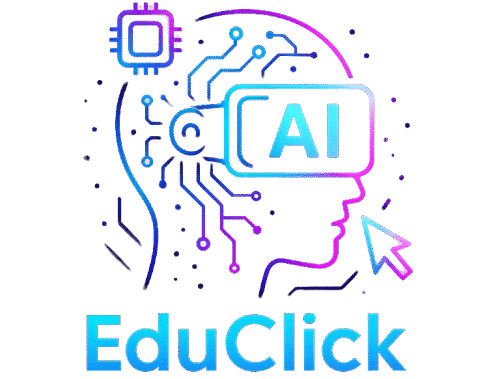How AI Is Shaping the Future of Learning: Transforming Education with Innovative Teaching Methods
Imagine a classroom that adapts to your unique learning style, where education is not just a standardized process but a personalized journey. It’s a world where the pace, style, and content of your learning are tailored just for you, making each day in the classroom an exciting opportunity for discovery. This is not just a dream; it’s the new reality being shaped by artificial intelligence. As you navigate through the rapid advancements in technology, you might wonder how these changes will affect education and, ultimately, your own or your children’s learning experiences.

Reflect on the traditional methods of education—lecture, textbook, exam. Now picture a system where AI takes those basic methods and enhances them with real-time data, interactive media, and adaptive learning paths. You might have experienced the struggle of trying to fit into a one-size-fits-all model of education. Maybe you were that student who needed just a little more time to grasp a concept, or perhaps you found yourself bored, waiting for the rest of the class to catch up. AI promises to address these struggles, providing a more engaging and effective educational experience tailored to your needs.
This transformation is not just about efficiency; it’s about equity and opportunity. Consider the countless individuals who have been left behind by traditional education systems. With AI, there’s potential to level the playing field, offering high-quality education to anyone, anywhere, regardless of socio-economic status. AI-powered tools can provide personalized feedback, support diverse learning styles, and open up access to resources that were previously out of reach.
As you delve deeper into this article, you’ll explore how AI is leveraging innovative teaching methods to reshape the future of learning. Whether you’re an educator looking to enhance your teaching methods, a parent curious about your child’s educational future, or a lifelong learner eager to understand new possibilities, this article will provide valuable insights into the revolutionary impact of AI in education.
The Role of AI in Personalized Learning
Understanding Personalized Learning
Personalized learning is an educational approach that tailors instruction to individual student’s preferences and needs. AI facilitates this by analyzing data from various interactions, determining learning patterns, and suggesting personalized educational content.
- AI algorithms assess student performance and preferences to create custom learning experiences.
- Enhanced engagement through content tailored to individual interests.
- Adaptive learning paths that adjust in real-time based on student progress.
Case Study: Implementing AI in Classrooms
Consider the case of a school in California that integrated AI into its curriculum. Teachers reported a 30% improvement in student performance due to AI’s ability to identify and bridge learning gaps. Students felt more engaged as the lessons were aligned with their personal learning speeds and interests.
Challenges and Solutions
While AI offers remarkable benefits, integrating it into educational systems comes with challenges such as data privacy and the digital divide. Solutions include:
- Implementing strict data protection policies.
- Providing equal access to technology across socio-economic backgrounds.
- Continuous teacher training to effectively utilize AI tools.
AI-Driven Tools Enhancing Classroom Experience
Smart Content Creation
AI enables the creation of dynamic and interactive content that adapts to student needs. This includes:
- Interactive textbooks that adjust to student comprehension levels.
- AI-generated quizzes tailored to reinforce recently learned concepts.
Virtual Tutoring Systems
Virtual tutors powered by AI provide students with 24/7 access to learning support. These systems can:
- Answer questions in real-time, offering immediate feedback.
- Provide step-by-step problem-solving assistance.
- Adapt instruction based on a student’s evolving skill level.
Natural Language Processing in Education
AI’s natural language processing (NLP) capabilities offer powerful tools for education, such as:
- Essay scoring systems that provide constructive feedback to improve writing skills.
- Language learning apps that offer personalized pronunciation and grammar corrections.
🎥 Vídeo complementar sobre o tópico
AI in Facilitating Collaborative Learning
Virtual Learning Environments
AI enables the creation of virtual learning environments where students can collaborate regardless of physical location. Features include:
- Shared digital workspaces for group projects.
- Real-time feedback and peer reviews through AI-assisted platforms.
AI-Powered Study Groups
AI organizes students into study groups based on complementary strengths and weaknesses, enhancing collaborative learning by:
- Matching students with peers who can provide unique insights.
- Facilitating balanced group dynamics that optimize learning outcomes.
Impact on Remote Education
The global shift towards remote education has been bolstered by AI, which supports:
- Efficient online course management systems that track student progress.
- Virtual classrooms that simulate face-to-face interaction and engagement.
Preparing for the Future of Learning with AI
Teacher Training and Development
A pivotal element in integrating AI into education is equipping educators with necessary skills. This includes:
- Workshops on AI-driven educational tools.
- Continuous professional development programs focused on innovative teaching methods.
Designing AI-Compatible Curricula
Developing curricula that harness AI’s potential involves:
- Incorporating digital literacy and AI competence into curriculum standards.
- Regular curriculum updates to keep pace with technological advancements.
AI Ethics in Education
As AI becomes prevalent in educational settings, understanding and addressing ethical concerns is crucial. Considerations include:
- Ensuring AI systems are free from biases.
- Maintaining student data privacy and security.
The Impact of AI on Student Outcomes
Improving Academic Performance
AI has demonstrated potential to significantly improve student outcomes by:
- Identifying and addressing individual learning gaps.
- Providing personalized feedback and study plans.
Enhancing Student Engagement
Interactive and personalized AI tools can boost student engagement by:
- Offering immersive learning experiences.
- Creating game-based learning environments that captivate students.
Long-Term Educational Benefits
The integration of AI in education not only influences immediate academic success but also offers long-term benefits, such as:
- Equipping students with critical digital skills for future careers.
- Promoting lifelong learning through adaptive learning technologies.

FAQ on AI in Education
What are the benefits of AI in education?
How does AI support personalized learning?
What challenges does AI integration in education face?
Can AI replace teachers?
How does AI improve student engagement?
What role does AI play in remote education?
How are AI tools impacting curriculum design?
What ethical considerations are associated with AI in education?
How do AI learning tools contribute to lifelong learning?
What is the future of AI in education?
Conclusion: Embracing AI for a Better Educational Future
As you ponder the future of education, it’s clear that AI is not just an addition to the educational landscape but a transformational force. Its ability to offer personalized and engaging learning experiences promises a brighter future for students and educators alike. By embracing AI, you are not merely adopting a new technology; you are championing a future of learning that is inclusive, effective, and adaptable.
For educators, AI provides an opportunity to redefine teaching methodologies and focus on what truly matters: inspiring and guiding students. For students, AI offers the chance to learn in ways that align with their natural strengths and preferences, making education a truly personal journey.
As you engage with AI in education, consider how you can contribute to this evolving landscape. Whether it’s advocating for equitable tech access, participating in AI tool development, or simply staying informed, your involvement is crucial. Let AI be a catalyst for continuous improvement in education, ensuring that the future of learning is bright, inclusive, and filled with potential.
Key Takeaways
- AI in education enhances personalized learning, improving student engagement and outcomes.
- AI tools support interactive content creation and provide continuous, adaptive feedback.
- Collaboration through AI-driven platforms enhances remote and in-person learning experiences.
- Addressing challenges such as data privacy and digital access is crucial for effective AI integration.
- The future of learning with AI promises inclusivity, adaptability, and enhanced educational quality.




